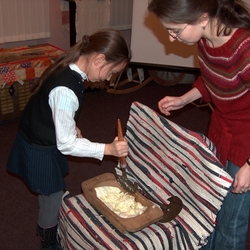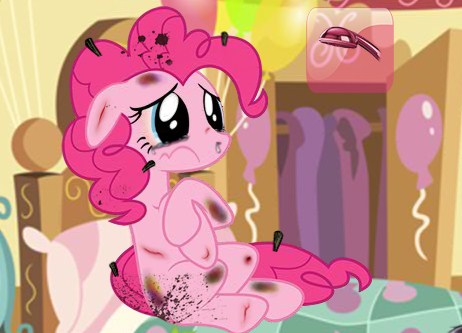Praise as an expression of love for a child
 You praised the child, but the next time you completed an assignment, you noticed that the child didn’t perform it less efficiently or, worse, didn’t ignore the assignment. “What happened?” – you wonder.
You praised the child, but the next time you completed an assignment, you noticed that the child didn’t perform it less efficiently or, worse, didn’t ignore the assignment. “What happened?” – you wonder.
The fact is that all children are different: some are calm, others are, on the contrary, hyperactive, some are sluggish, others are doing everything in a hurry. How can you praise your child in order not to make it worse in the future?
First, carefully look to your child, to what number of children he belongs. If he is calm and slow, then such a child should be praised only when he actually deserves this praise. He will instantly see through your false praises and will further realize that, in order to receive your praise, it is not necessary to do something, perhaps, and so it will come down. Such children usually sit for a long time playing in the sandbox, they can play for hours with one toy, assemble a designer or a picture from a puzzle, such a pastime is a pleasure for them, they are assiduous and attentive. Sometimes parents are annoyed by excessive sluggishness, and they consider it more likely to be a disadvantage than an advantage. They begin to break their child, as if hurrying him. But the fact is that such children set themselves the goal of doing business with high quality, and not quickly. Therefore, the parent should not condemn, but on the contrary – encourage such behavior, since it will only further contribute to the development of perseverance and a sense of justice in the child.
The right praise can help the little man to reach great heights in life, because the habit of doing everything perfectly will be laid down for him for the rest of his life. And from it in the future can turn out highly qualified specialist in their field. Supporting persistence in him to bring the matter to the end, he with the same perseverance will approach the fulfillment of the tasks set and will not give relief to himself. The important point is that such children should not be overlooked, if you do not fully appreciate the work of your child, such an attitude can also cause indifference to the implementation of the following tasks. These children should clearly understand why they received praise and whether they received it in full.
If a child, on the contrary, is hyperactive, then it is better to praise such a child than not to praise it. The praise in his case is a tool for the child to focus on the task and, after 5 minutes, did not switch to more interesting active games. After all, it is very hard for such children to focus their attention on the performance of one task, and the right motivation, and in the future and receiving a reward in the form of praise, contributes to the fact that the child will still bring the matter to the end. After the time has passed, it will become a habit, and you will need less and less time in order to attract the child to perform the necessary tasks. How to recognize these children? Such children do not sit in one place, they are in constant motion, they have a frequent change of interests, and long reading of books for them becomes a real test.
Secondly, it is very important for a child how you praise him. It’s one thing – if your praise is obtained as if on an automatic machine, without much understanding of what is happening, no matter what he did, you repeat the same phrase: “Well done! Well done!”; another thing – if you grasp, for which you praise, praise some individual components of the task done, for example: “Well done, you, as always, beautifully drew a picture, but today the car you are especially beautifully successful!”. With such a phrase, the child will understand that he is being praised for real, for this completed task, and not just to praise. After all, children actually feel whether they deserve praise or not, and seeing that a loved one praises them undeservedly, they begin to lose confidence in their parents. Parents for the child are the main critics and connoisseurs of his actions, so everything he does, in the first place, he does in order to receive a portion of praise from the people closest to him. And when a child does not receive this portion, corresponding in size to the level of tasks performed by him, an insult originates in him. The offense of a child to a mom or dad can later turn into a misunderstanding, a discord in the relationship between parents and child. The worst scenario could be the complete alienation of the child from the parents.
For any loving parents, the main goal in raising a child is to raise a good person. At first glance, this is not easy, but not as difficult as it seems. It’s not easy because there are always fears to do something wrong, but it’s easy because every parents know what’s best for their child, based on their personal qualities. The ability to praise is one of the tools of proper upbringing, so praise your children for the cause, from the heart, and do not stop doing it, even when the children are no longer children, because in the depths of their souls they always need your praise and support in any endeavors.



